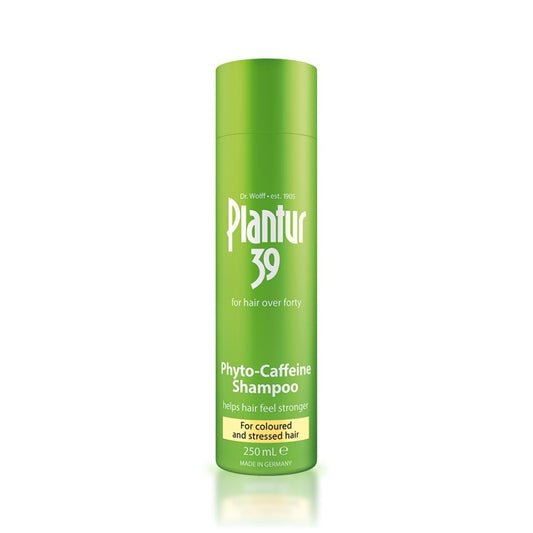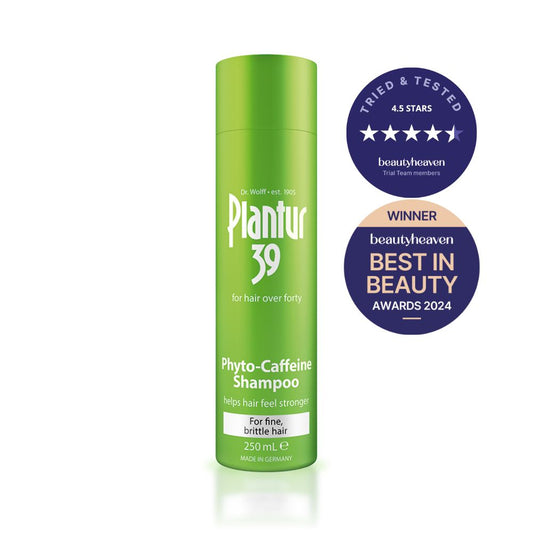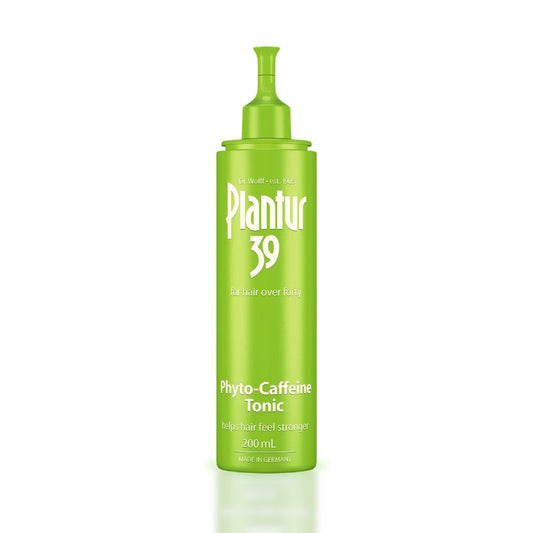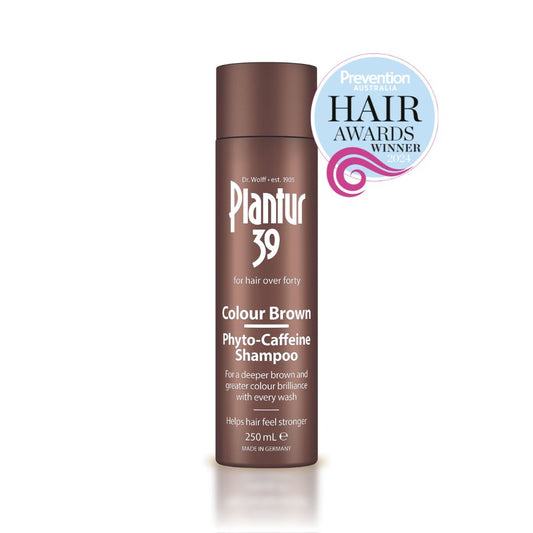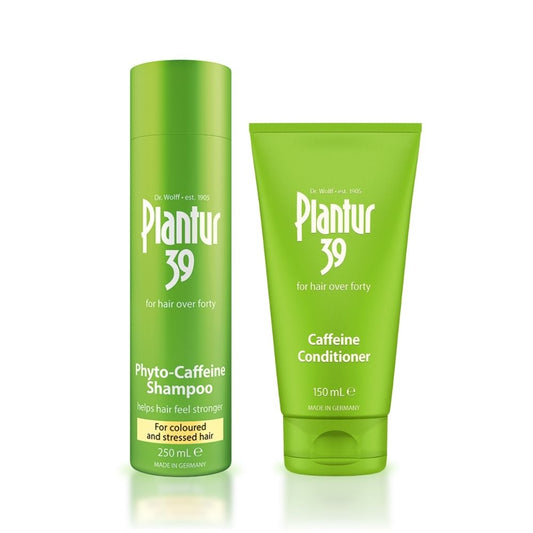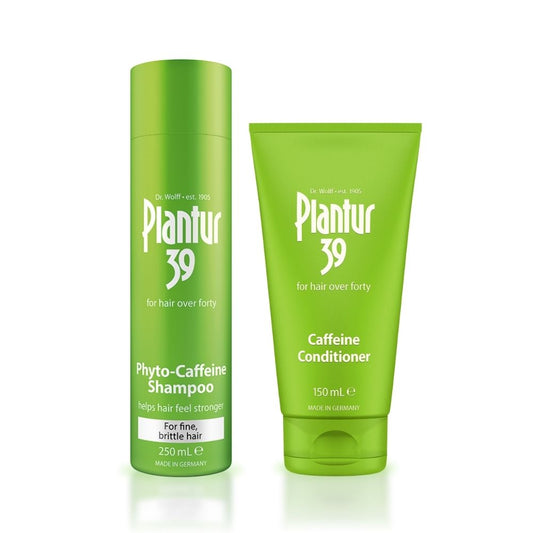Let's Talk About Weak Hair

While discussing weak hair may not be the most exciting topic, addressing it can help you overcome brittle, frizzy hair and restore your locks to their full potential. Understanding the symptoms and causes of weak hair provides a significant advantage, allowing you to take effective action.
In this guide, we will explore options for weak hair, including enjoyable methods such as scalp massages, hair care and nutritional changes that can aid in restoring your hair to its former glory.
Understanding Weak Hair
Healthy hair is characterized by a silky, smooth texture, shine, moisture retention, and elasticity. Conversely, weak hair appears limp, lackluster, thin, or prone to breakage and shedding.
If you recognise these symptoms in your hair, it's important to understand that weak hair is often due to genetic or hormonal factors. However, there are steps you can take to strengthen your hair.
Indicators You May Need to Take Action
Do you find yourself experiencing more bad hair days than good ones? Weak hair can manifest in various ways, including:
- Frizziness
- Split ends
- Dryness
- Limp strands
- Thin and lackluster appearance
- Brittleness
- Increased breakage
- Shedding from the roots
- Tangling
Elasticity is a hallmark of healthy hair. To test this, gently pull a strand at both ends. If it bounces back, it is healthy; if it breaks easily, it may be weak.

Causes of Weak and Falling Hair
Strong, healthy hair requires a proper balance of protein and moisture. Several factors can disrupt this balance and weaken your hair:
- Genetic or Hereditary Factors: Genetics influence hair density, length, colour, texture, and conditions such as male pattern baldness and female hair loss. However, other factors can also impact hair strength and health.
- Hormonal Changes: Hormonal imbalances can disrupt the hair growth cycle and cause thinning. Factors include menopause, childbirth, birth control pills, and thyroid issues.
- Excessive Hair Styling: Tight hairstyles, extensions, dyeing, bleaching, and heat treatments can damage hair shafts and cuticles.
- Nutritional Deficiencies: A healthy balance of essential nutrients is crucial. Deficiencies in protein, iron, vitamin D, and zinc can weaken hair.
- Medication Use: Some medications can weaken hair roots and disrupt the growth cycle, check with your health care practitioner if this is a side effect of your medications.
Options for Weak Hair
There are several effective strategies to restore moisture and shine to weak hair:
- Address Nutritional Deficiencies: Nutritional deficiencies, particularly in zinc, iron, and vitamin D, can lead to hair loss. Ensure you’re meeting your nutritional needs through whole foods. Work with your healthcare practitioner to investigate and address these.
- Scalp Massage: Boost blood circulation to your hair follicles with a daily 4-minute scalp massage. Combine it with a deep conditioner for added benefits.
- Hair Strengthening Products: Plantur 39's range of products contains the unique Phyto-Caffeine Complex to help protect and strengthen weak hair. Shop Now
In this guide, we will explore options for weak hair, including enjoyable methods such as scalp massages, hair care and nutritional changes that can aid in restoring your hair to its former glory.
Understanding Weak Hair
Healthy hair is characterized by a silky, smooth texture, shine, moisture retention, and elasticity. Conversely, weak hair appears limp, lackluster, thin, or prone to breakage and shedding.
If you recognise these symptoms in your hair, it's important to understand that weak hair is often due to genetic or hormonal factors. However, there are steps you can take to strengthen your hair.
Indicators You May Need to Take Action
Do you find yourself experiencing more bad hair days than good ones? Weak hair can manifest in various ways, including:
- Frizziness
- Split ends
- Dryness
- Limp strands
- Thin and lackluster appearance
- Brittleness
- Increased breakage
- Shedding from the roots
- Tangling
Elasticity is a hallmark of healthy hair. To test this, gently pull a strand at both ends. If it bounces back, it is healthy; if it breaks easily, it may be weak.

Causes of Weak and Falling Hair
Strong, healthy hair requires a proper balance of protein and moisture. Several factors can disrupt this balance and weaken your hair:
- Genetic or Hereditary Factors: Genetics influence hair density, length, colour, texture, and conditions such as male pattern baldness and female hair loss. However, other factors can also impact hair strength and health.
- Hormonal Changes: Hormonal imbalances can disrupt the hair growth cycle and cause thinning. Factors include menopause, childbirth, birth control pills, and thyroid issues.
- Excessive Hair Styling: Tight hairstyles, extensions, dyeing, bleaching, and heat treatments can damage hair shafts and cuticles.
- Nutritional Deficiencies: A healthy balance of essential nutrients is crucial. Deficiencies in protein, iron, vitamin D, and zinc can weaken hair.
- Medication Use: Some medications can weaken hair roots and disrupt the growth cycle, check with your health care practitioner if this is a side effect of your medications.
Options for Weak Hair
There are several effective strategies to restore moisture and shine to weak hair:
- Address Nutritional Deficiencies: Nutritional deficiencies, particularly in zinc, iron, and vitamin D, can lead to hair loss. Ensure you’re meeting your nutritional needs through whole foods. Work with your healthcare practitioner to investigate and address these.
- Scalp Massage: Boost blood circulation to your hair follicles with a daily 4-minute scalp massage. Combine it with a deep conditioner for added benefits.
- Hair Strengthening Products: Plantur 39's range of products contains the unique Phyto-Caffeine Complex to help protect and strengthen weak hair. Shop Now

